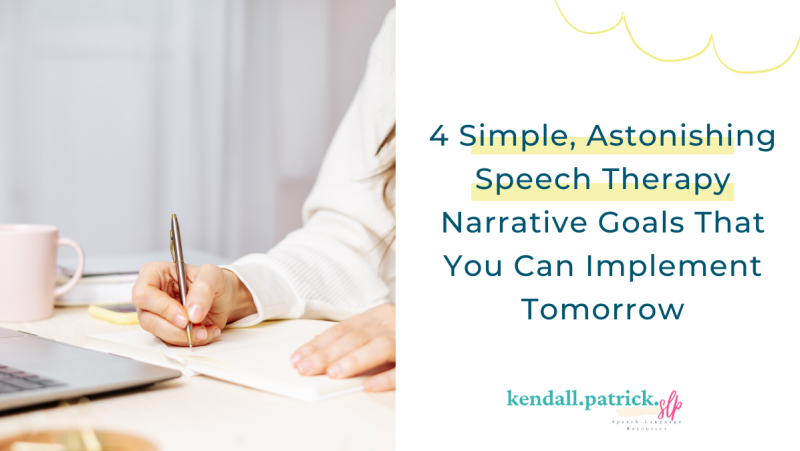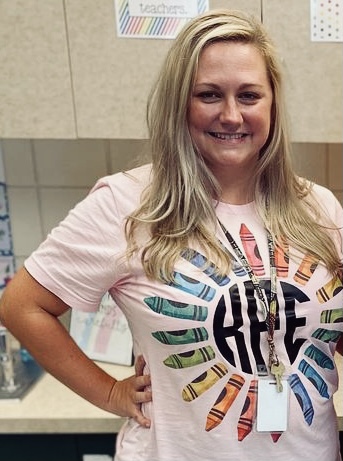Speech therapy narrative goals for a variety of ages on your caseload! Working on story retell is a great way to get the most bang for your buck in language therapy. Narrative language acquisition helps promote better comprehension as well as the use of complex language. When working on narrative language, you are also incorporating grammar skills, social skills, vocabulary, and comprehension all in one.
To sign up to receive all of my freebies, including my continuously growing goal bank, enter your info below!
Speech Therapy Narrative Goals
I currently have a four-year-old little boy who loves books and movies. Listening to him try to tell you one of his favorite movies or stories (or narrate AS we are watching the movie) is one of my favorite past times. Not only is it super entertaining (because he certainly doesn’t get all the details right all the time) it also just amazes me! To be so little and still be able to tell a simple story with key elements and sequenced events is just so cool! Language development still just blows my mind sometimes.
In preschool, a child should be able to understand a simple story, as shown by answering questions about the orally presented story and retelling a simple story in sequence.
At this stage, I like to focus on simple narratives, and basic comprehension (e.g., retelling a simple/single episode, answering who and what questions following a story).
So my goal might look like this:
STUDENT will accurately sequence at least 3 events from an orally presented story with 80% accuracy as measured by therapy data and observation.
By Kindergarten/early elementary, children should be able to retell a simple story, answer questions about the story, AND demonstrate understanding of more components of the story- character/character description, setting, feelings, plot, etc.
This goal might appear as:
STUDENT will apply an organizational strategy to express 3-4 story grammar parts (e.g., character, setting, problem, ending) following an orally presented story in 3 out of 4 attempts as measured by therapy data and progress monitoring.
Examples of Smart Goals for Speech Therapists
Goals should be written to be specific, measurable, attainable, relevant and time-based.
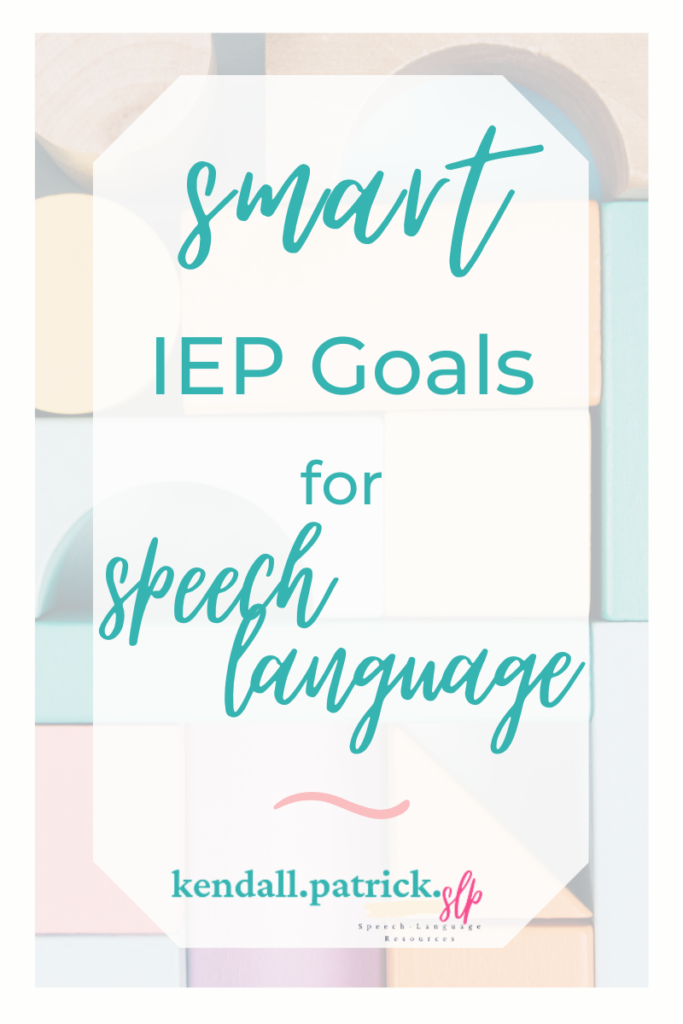
Speech Therapy Goal Writing for Narrative Retell
While these areas are great to work on, sometimes writing goals for them can be tricky. I’ve found it easiest to do it one of two ways:
- Write a goal for one target you want to address within the goal. For example, targeting past tense verbs for grammar while working on retell.
- Or write the goals for the big picture you want to accomplish. For example, STUDENT will retell a simple episode by including 4/5 story grammar components.
Speech Narrative Example
A simple episode should include: a character, problem, feeling, sequenced events, and solution/simple ending. As language continues to develop, more complex episodes will start to form and include the former elements plus a setting, plan, consequences, ending feelings; as well as more complex sentence structure. Stories will also begin to include multiple episodes.
Getting a Baseline + Progress Monitoring
One of the best ways to gather a variety of baseline data in a simple measure is to get a narrative retell sample. During the first couple weeks of my back-to-school speech therapy sessions, I spend one day getting narrative samples from all of my students identified with a language delay or disorder. What does this look like? You may ask… or Who’s got time for that?? It’s not as daunting a task as it seems, I promise!
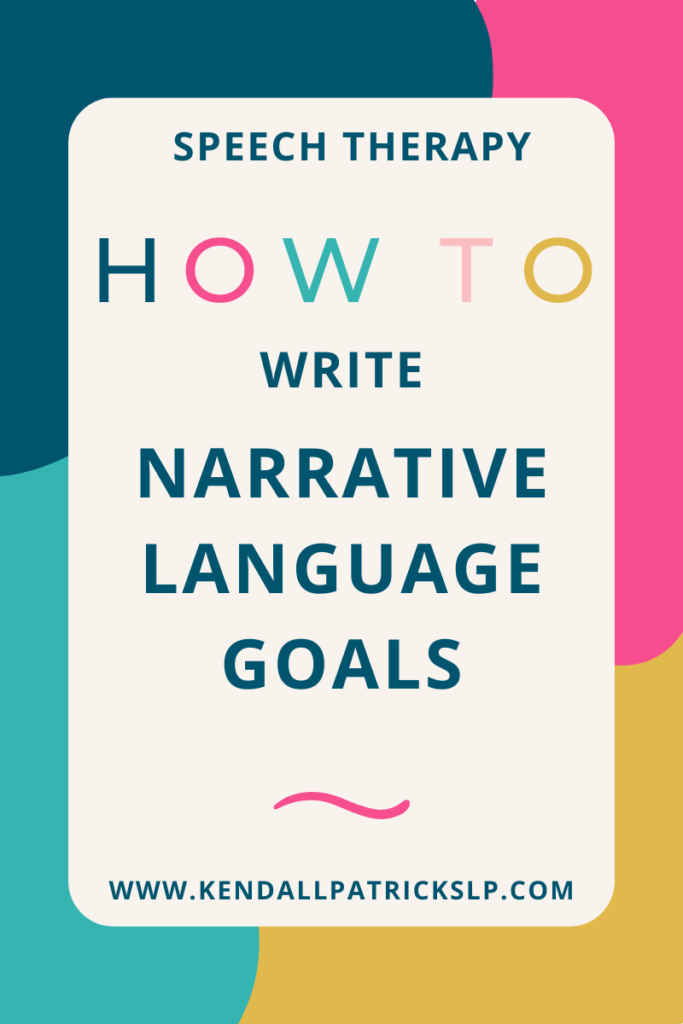
This is what I do:
Step 1: Choose a book with a clear complete episode (or multiple episodes) – character, setting, initiating event/problem, feelings, action sequence, consequence, solution, and ending. (For speech therapy activities for older students, you can also look at higher-level components such as dialogue, embedded episodes, inferences, etc.).
Step 2: Read this book to each of your groups for the day (without additional questioning, prompting, or guiding – which is so hard, I know!) Let them know you will ask them to tell you the same story at the end, so they must listen closely.
Step 3: After finishing the story, pull each student aside and ask them to tell the story back to you as well as they can. Do not prompt them, but encourage them to do their best while reminding them it is okay if they do not remember everything.
Step 4: Write down everything they say – make sure to write it exactly as they have said it so you can mark grammar errors as needed.
Step 5: Review responses and mark the components the student has included and the ones they have left out. Also, mark any grammatical errors and any transition words that they used.
And that’s it! In one therapy session (with a little review time afterward) you have an overall picture of your student’s language content – vocabulary, sentence structure, and grammar.
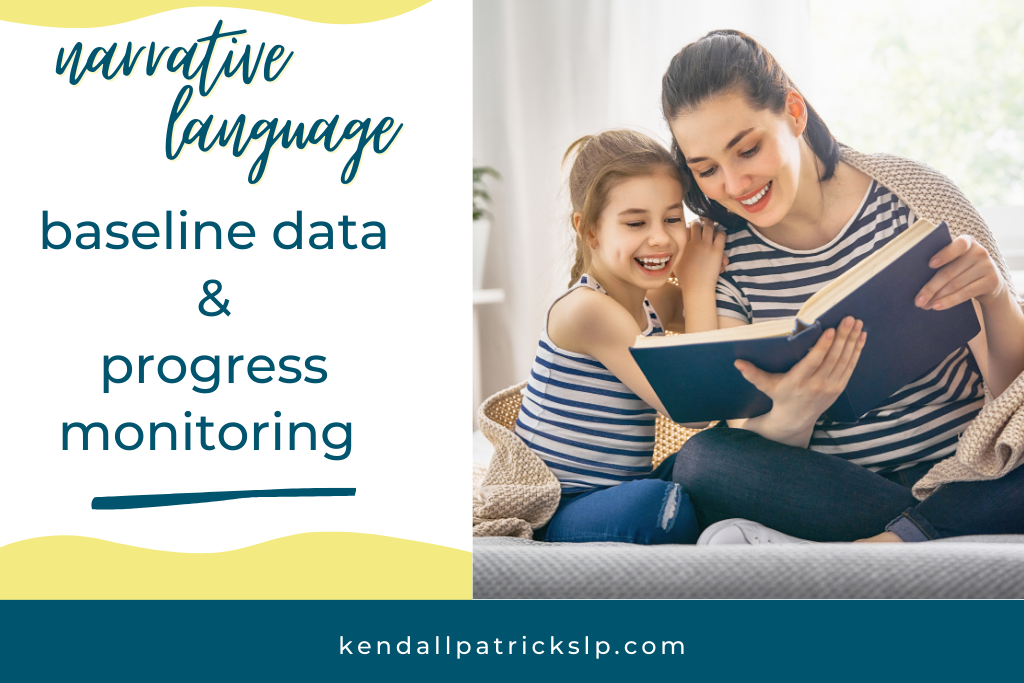
Writing Speech Therapy Narrative Goals from Baseline Data
The narrative baseline should give you a place to start in therapy based on the language components that were left out (e.g., character names, feeling words, correctly sequenced actions, etc.), weak or repetitive vocabulary, and a variety of sentence structure (e.g., correct grammar use, past tense verb use, pronoun use, transition words, complex structure, etc.) or lack thereof.
Narrative Therapy Activities
Now comes the really fun part, working on narratives in therapy! There are so many fun and simple ways to do this, you can use almost any of your favorite books or stories from their curriculum. Here are a few of my favorite structured programs that you can use to teach narratives in your therapy sessions.
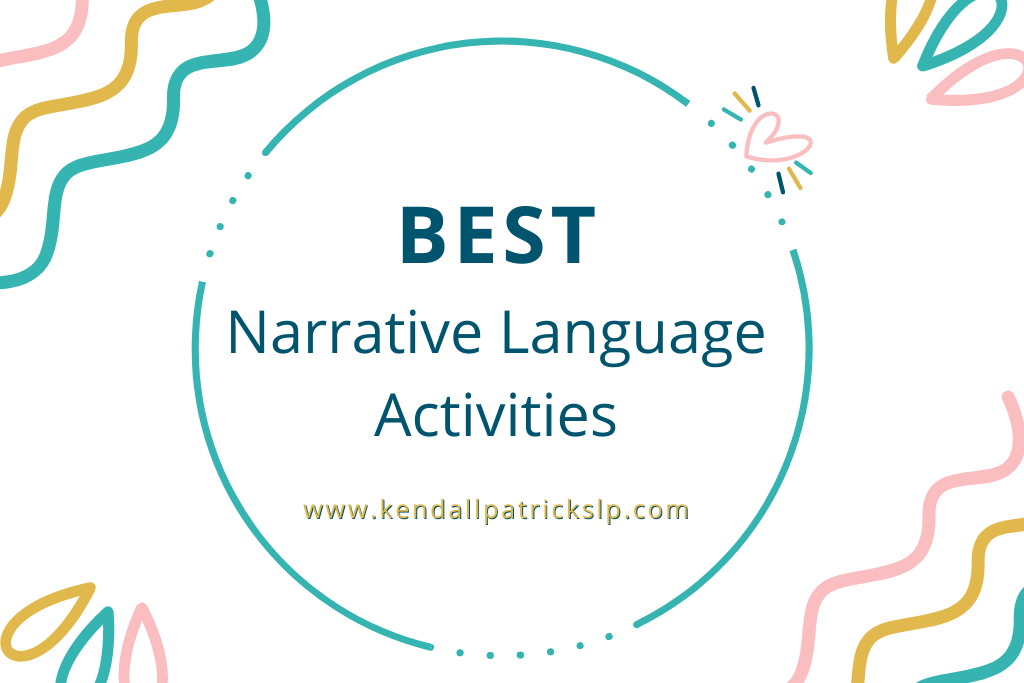
Story Champs
Story Champs is probably one of my all-time favorites and I use it every week in my therapy sessions. It is structured to be used as a language intervention (perfect for MTSS), but as a therapist, you can adapt to use easily within your therapy sessions. The Story Champs program comes with a ton of stories, on various levels, to be paired with their pre-made lesson plans. These plans are organized by individual, small group, or large group sessions.
You can start at any level within the program based on your students’ ability levels and needs. I use their free assessment (the CUBED) as a pre/post-test or progress monitoring to see what my students’ need to work on. There are also add-on lessons to help address vocabulary and complex sentence structure, they’ve really thought of everything. I highly recommend checking it out! They also include a Spanish version if you are in need of bilingual materials. I have attended a few of their trainings as well and I highly recommend them.
Story Grammar Marker
The Story Grammar Marker is another great tool for teaching narrative language. It has a kinesthetic tool with visuals for each story element to help the children to remember to incorporate that element in their retell. On their website, they also have a blog with tons of therapy ideas to use to teach these skills. They also provide trainings on using their tool, as well as ideas for their favorite books/stories to use at each level. A great resource!
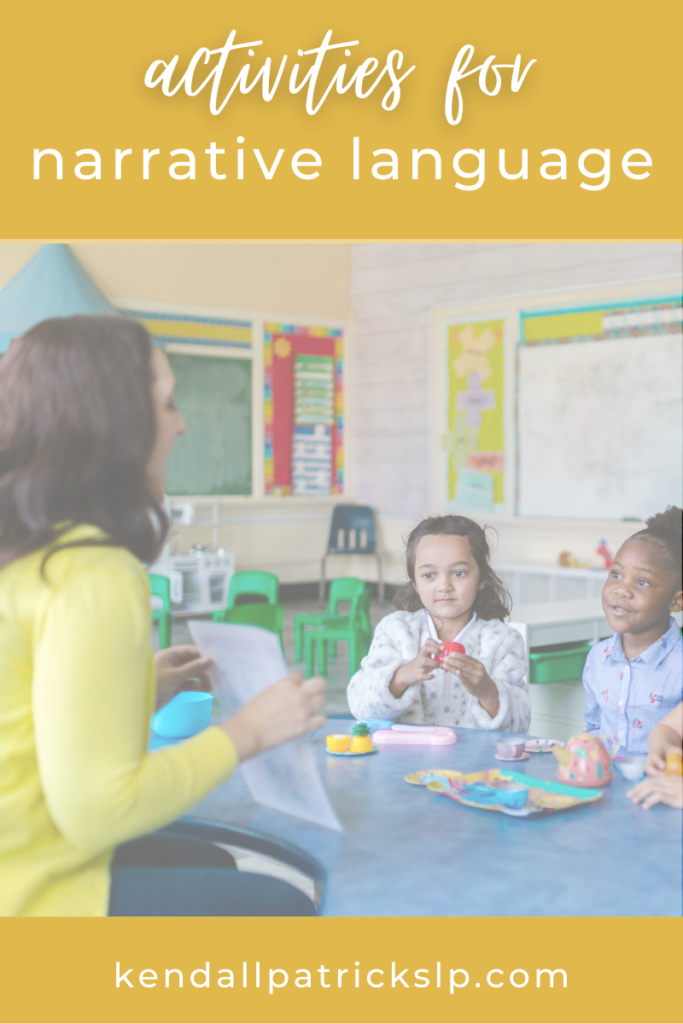
For more information on speech therapy narrative goals:
NARRATIVE INTERVENTION from Speechy Musings
Oral Narratives In Speech Therapy from The Gift of Gab
Sequencing Goals in Speech Therapy from Bilinguistics
Don’t forget to sign up with your email address here to get access to my free library (growing all the time) full of some of my goodies made exclusively for my followers.
I hope you found some of these ideas helpful and can use one or more in your therapy room. Please leave a comment or shoot me an email if you want to share some of your favorite speech therapy narrative goals and treatment ideas.

